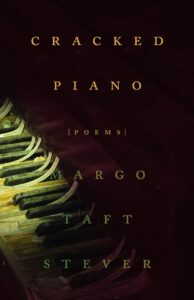
But whoever hates his brother is in the darkness and walks
in the darkness, and does not know where he is going,
because the darkness has blinded his eyes.
John 2:11
Down, down, down, down, they tell you to lie
down in the coal car to find the inky black
mules, blinded by darkness. Eight years old,
1952, with your father; you are his vet tech.
You travel up on the Piedmont Plateau
and enter the Cresson Mine. No one sits up—
the electric wire running above is live.
All aboard for the bottom. Wet or dry, the shaft
always rains, water drains into the sump.
The mule, horse and donkey cross, sure-
footedness of one, strength of the other,
best of both, the burdened beast is the miner’s
friend. In dreaded darkness, mules’ eyes
like owls’ are sharpened by blackness—
eyes that never quit mines until the mules die.
Perpetual night enhances eyesight, blinds them
to daylight. They stable mules in straight stalls, no space
to lie down; steel doors keep rats from infesting grain.
Your father treats sick mules—black lung disease,
mules exposed to crystalline silica dust. Shocked
by the blackened miners and mules, covered from
head to toe with soot, you hold the lantern
for your father. Some miners spend
their breaks with mules, feed them bread
and chewing tobacco. Mules can be taught
anything, but many fear darkness; boy
drivers find some who will pull cars only
when they carry lights to guide them.
Do you remember the Cherry Mine Disaster—
480 men and boy drivers as well as mules trapped—259
people died after the electrical system broke down
when cars carrying hay to feed the mules
got too close to a kerosene lamp? Miners tried
to move the car, and timbers supporting
the mine became an inferno.
In the Darr Mine Disaster, 239 men and boys who
worked with their fathers and their mules died.
The company allowed the use of open flame lamps.
When coal dust collected in gassy shafts, explosions ripped.
Rescuers punched through the barrier and found dead
fathers embracing their sons, overcome by black damp—
bodies bloated, blood and foam engulfing their mouths.
Once, miners brought a mule named Tim
to the surface for retirement after he had toiled
for decades. At first, they turned him out
at night to avoid light. At sunrise, all Tim
could do was nuzzle the green spring tufts
until he noticed a cow eating, and he tried
munching grass, his new heaven.

Oh Margo, your poem has overwhelmed me! My tears are many and fall over visions of the men, the boys, the pathetic, loyal, patient donkeys who labored for years without ever proper rest. And the thought of Don, as a boy,experiencing this awful sadness and his father who worked so hard to provide what relief he could. AND the final picture of the aged donkey for whom a bit of green grass and and the blessing of clean air was his bit of Heaven, really did me in. Congratulations, Margo. You really excel at the power of words
You truly know how to plumb depth and darkness to bring us into the sun. Thank you.
Dear Barbara and Gerald,
Thank you for your comments. I was just writing to Charles Entrekin, editor of Sisyphus, that it means to much to receive positive comments about one’s poetry when usually one hears not much at all from those who read literary magazines. Thanks to both of you, and thank you to Charles and the editors at Sisyphus.
Best wishes, Margo T. Stever
A powerful, poignant poem. Vivid and heartbreaking.
I love this beautiful, well-crafted and heartbreaking poem, Margo. As you know, I’m a big fan of your work. You have a clear and moving voice.